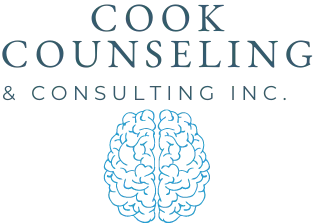Trauma can leave a deep, emotional scar that can greatly impact your life. Using gratitude to heal trauma is like looking with one eye. If you only see the good or the light, you might lose your sense of humanity, whereas if you only focus on the bad or the dark, you might drown in the hurt, pain, and failure, making it impossible for you to bounce back. Thus, you will need to find a balance between both worlds and walk the path of trauma while holding onto the most human parts of yourself.
You can use gratitude to accept the pain, search for the good in it, and find your way out of the dark world. In simpler words, when it comes to healing trauma, gratitude is saying to yourself, “Yes, I have suffered pain, and yes, it wasn’t fair, but hope and love have found me and are showing me the way out.” While this might sound unreal, according to several studies, gratitude has helped Vietnam War Veterans and victims of a campus shooting in dealing with PTSD. Keep reading to learn more about the role of gratitude in healing trauma.
1. Promotes Positive Emotions
Practicing gratitude helps cultivate an optimistic outlook on every situation. In fact, practicing ten weeks of gratitude can help you in feeling more positive about yourself and your life, shifting your focus from the negatives of life to the positives. In other words, when you practice gratitude to heal trauma, you start to feel good. As a result, your brain releases hormones like serotonin and dopamine, enhancing compassion, love, and joy, improving your mood and overall well-being. Furthermore, practicing gratitude will also block negative emotions, toxicity, anger, resentment, and envy from your life. This will ultimately not only heal your trauma but also make you a better person.
2. Reduces Symptoms of Depression and Anxiety
According to a study, practicing gratitude on a daily basis can help in easing the symptoms of depression and anxiety. When you focus solely on the positives in your life, your brain stops ruminating and worrying about the things that aren’t so good. This redirects your mind’s attention and helps in coping with episodes or thoughts triggered by anxiety and depression.
3. Increases Resilience
Resilience is your ability to bounce back after a difficult situation. When a person practices gratitude, they learn to appreciate the good things about their life, even in the most difficult times. This ultimately helps them cope better with adversity and stress, increasing resilience and making them stronger at the core.
4. Improves Relationships
Gratitude also helps not only form new relationships but strengthen old ones. People who practice gratitude are less likely to feel isolated and lonely. Express gratitude by telling others that you value them. This will help in strengthening trust in your relationships, increasing social support, and having better emotional and mental health.
Wrapping It Up!
In a nutshell, gratitude plays an integral role in healing trauma throughout your life. It helps in shifting your focus from the negative to the positives of life, reduces anxiety and depression, increases resilience, and improves relationships. If you want to start practicing gratitude, take out the time every day to acknowledge the good things in your life and express your love and appreciation to those who matter.
References
National Library of Medicine. (2006). Gratitude and Hedonic and Eudaimonic Well-Being in Vietnam War Veterans. Retrieved from National Library of Medicine.
https://pubmed.ncbi.nlm.nih.gov/16389060/
National Library of Medicine. (2016). The Role of Resilience and Gratitude in Posttraumatic Stress and Growth Following a Campus Shooting. Retrieved from National Library of Medicine.
https://pubmed.ncbi.nlm.nih.gov/27548470/
SpringerLink (2021). Gratitude Interventions: Effective Self-help? A Meta-analysis of the Impact on Symptoms of Depression and Anxiety. Retrieved from SpringerLink.
https://link.springer.com/article/10.1007/s10902-020-00236-6

